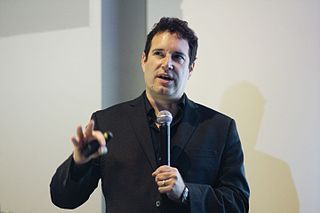A Quote by Kenneth Rexroth
Today we hear a great deal about Organizational Men, Mass Culture, Conformity, the Lonely Crowd, the Power Elite and its Conspiracy of Mediocrity. We forget that the very volume of this criticism is an indication that our society is still radically pluralistic. Not only are there plenty of exceptionalists who take exception to the stereotyping of the mass culture but that very string of epithets comes from a series of books that have been recent best-sellers, symptoms of a popular, living tradition of dissent from things as they are.
Quote Topics
About
Been
Best
Books
Conformity
Conspiracy
Criticism
Crowd
Culture
Deal
Dissent
Elite
Exception
Forget
Great
Great Deal
Hear
Indication
Living
Lonely
Mass
Mass Culture
Mediocrity
Men
Only
Organizational
Our
Our Society
Plenty
Pluralistic
Popular
Power
Radically
Recent
Sellers
Series
Society
Still
String
Symptoms
Take
Things
Today
Tradition
Very
Volume
Related Quotes
The Second Wave Society is industrial and based on mass production, mass distribution, mass consumption, mass education, mass media, mass recreation, mass entertainment, and weapons of mass destruction. You combine those things with standardization, centralization, concentration, and synchronization, and you wind up with a style of organization we call bureaucracy.
What has happened now in mass media and advertising is not only that they've adopted the style and the look of fringe culture; that has been happening for a long time. What they've now done is gone a step further: They've now taken the very idea that there is any dissent at all - it doesn't even matter what form it takes - and made it part of how they're going to sell something.
In ancient times there was no public education, except that of the forum, the theater, and the street, and the general degree of illiteracy was very high. The early men of science were left very much to themselves and such a phrase as "the scientific culture of Alexandria in the third century B.C." does not cover any reality. In a sense, this is still true today; the real pioneers are so far ahead of the crowd (even a very literate crowd) that they remain almost alone.
I lived in Greece for about four years of my life, and living there had a huge impact on my life growing up. My father was very much adamant that we would learn about our culture. It's a very rich culture to be a part of since it has such a great history behind it. I definitely carry that in my job, and I am very passionate.
Our society offers little in the way of reeducation for those who have been torn away from their traditional culture and suddenly exposed to all the blandishments of mass culture-even the churches which follow the hillbillies to the city often make use of the same "hard sell" that the advertisers and politicians do.
One could dismiss the zombie trend as merely feeding a mass public that craves the strange and bizarre. Such an explanation would be only skin-deep. Popular culture often provides a window into the subliminal or unstated fears of citizens, and zombies are no exception. Some cultural commentators argue that the September 11, 2001, terrorist attacks are a primary cause for renewed interest in the living dead, and the numbers appear to back up this assertion.
The only way to make something cheaply today is to have it mass-produced. For example, you wear the same shoes as everyone else. If you had a fabber, you could custom-make shoes that perfectly fit your feet. Three-dimensional printing will help us move away from the mass consumption that is so deeply ingrained in our culture.
In society, in the best institutions of men, it is easy to detect a certain precocity. When we should still be growing children, we are already little men. Give me a culture which imports much muck from the meadows, and deepens the soil,--not that which trusts to heating manures, and improved implements, and modes of culture only!







































